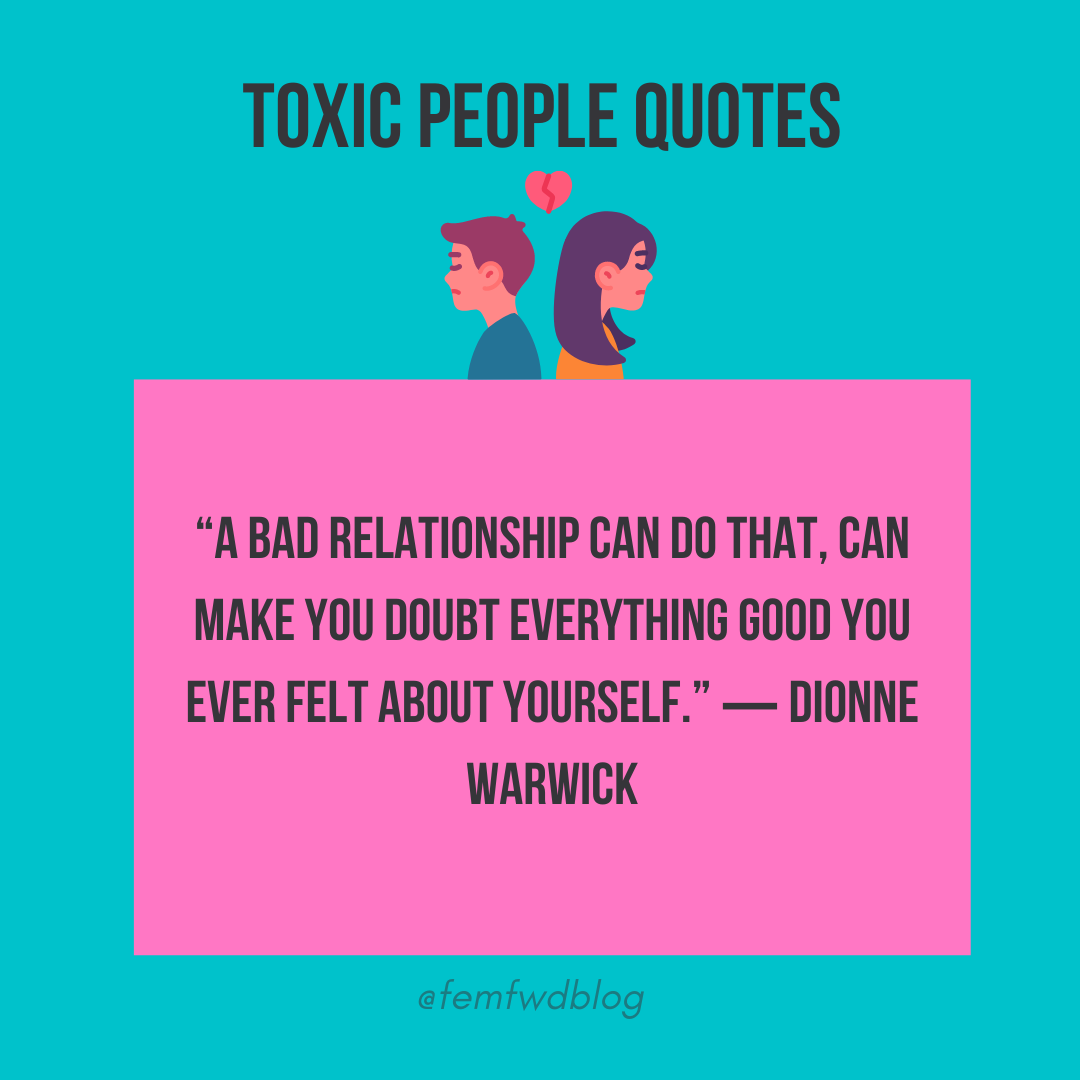7 Types of Toxic Relationships
If you have read anything about toxic relationships, you know it can make you question everything about yourself. You question why or how you could ever be in a toxic relationship. You wonder why you are attracted to toxic people or relationships. You might even start to question whether you are toxic yourself.
Bottom line: being in a toxic relationship leaves you empty, scared, lonely, sad, upset, and ashamed.
The feelings run deep and stings no matter if you were the toxic person, your partner was, or the combination of the two of you made it toxic. If you are in a place where you want to learn more about yourself and your relationships, check out the article on toxic traits and take this toxic relationship quiz. It allows you to figure out more about yourself or your partner. The best part…we provide the answers, so you can learn healthy and secure relationship signs!
Below are some toxic relationship patterns to help you pinpoint or find the words to name what you struggle with. While these are not definable mental health disorders, they can help us identify unhelpful or toxic patterns that need to be corrected or stopped (Psst…someone may have more than one toxic trait).
7 Types of Toxic Relationships
The Domineering Partner:
This individual has a dominant presence or energy. They may take over the conversation or insert themselves and their opinion all the time, even when it is unsolicited.
You may feel your opinion, wants, and/or needs are inferior to the other persons.
You actually might be more subdued or keep your opinion to yourself because you do not want to upset or cause drama in the relationship.
The Extremely Insecure Partner:
This type of partner is constantly asking for feedback about their appearance or your attraction to them.
They may constantly put themselves down in the presence of others.
They never feel good or lovable enough.
You feel pulled to reassure them.
The Perfectionist:
This person sets really high standards for themselves and/or their partner.
You might feel like you are always falling short of your partners expectations.
You may feel subordinate and insecure because something isn’t perfect according to the spoken or unspoken expectations.
This perfectionistic partner may even feel resentful because they take on too many responsibilities but the partner doesn’t want to step up because they get ridiculed or naturally feel undermined.
The Narcissistic Partner:
This individual will likely not know or see that they are ALL about themselves.
They often make you feel like a burden for bothering them but if you don’t call, text, or email them, then they feel slighted, insecure, or like you don’t care about them.
You may walk on eggshells or feel guilty often.
You or your partner always has to go along with the narcissists agenda to keep the peace.
The Blaming Partner:
It is never their fault.
They always find a way to blame you in an argument or if something doesn’t go their way.
They can’t tolerate something being their fault.
The Competitive Partner:
This person turns everything into a competition.
Who can finish something faster? Who can make this meal the best?
They always want to make something into a game, and they want to win. It is exhausting!
You just want to enjoy each other’s company and relax, but someone always has to be a winner or a loser.
The Lying Partner:
You notice that you or your partner has an issue lying and it probably took you or your partner a while to figure this out.
It is also perpetual, pervasive, and problematic.
The lying can be about anything like money, a job, a story, or something happened that day at work.
It is like they feel they can’t help themselves.
They often don’t lie to hurt you but may be about their own insecurities about themselves and how others perceive themselves.
They may feel the need to lie to make themselves appear better or better off than they really are.
Feel like you or your partners toxic traits are impacting parenting? Check out our parenting workshops.
Toxic People Quotes
“Thinking of you is a poison I often drink.” - Atticus
“When he’s the last thing you need, he’ll drain you. He’ll exhaust you. He’ll destroy you. And you won’t see it that way. In fact, you won’t notice it at all. But everyone else will.” ― Kirsten Corley
“A bad relationship is like standing on broken glass, if you stay you will keep hurting. If you walk away, you will hurt but eventually, you will heal.” ― Autumn Kohler
“I am not what happened to me, I am what I choose to become.” ― C.G. Jung
How to Change a Toxic Relationship
After you read or identify some toxic relationship patterns, you might be wondering it you can change, whether your partner can change, or if you should split ways. While there is no easy or quick fix answer, people can change if they want to. You can’t fix someone who doesn’t know or what to change. Remember relationships take two people and both people have to work together to make it healthy, happy, and sustainable. Check out our how to communicate better workshop because good communication is key to fixing a toxic relationship.
Sign Up For Our Newsletter
If you found this article helpful be sure to sign up for our newsletter to stay updated on our new articles. If relationships are of particular interest to you, you’re in luck! This article is part of our toxic series. Stay tuned for information on why do I keep getting into toxic relationships, boundary setting, and so much more.


